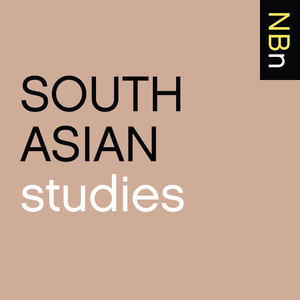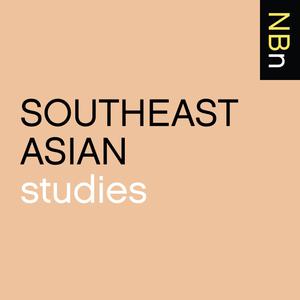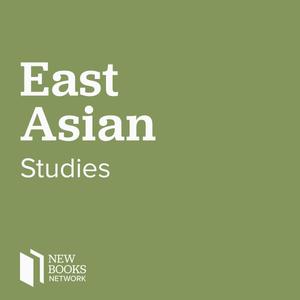
New Books in South Asian Studies
Interviews with Scholars of South Asia about their New Books
- 53 minutes 22 secondsFauzia Husain, "The Stigma Matrix: Gender, Globalization, and the Agency of Pakistan's Frontline Women" (Stanford UP, 2024)
As developing states adopt neoliberal policies, more and more working-class women find themselves pulled into the public sphere. They are pressed into wage work by a privatizing and unstable job market. Likewise, they are pulled into public roles by gender mainstreaming policies that developing states must sign on to in order to receive transnational aid. Their inclusion into the political economy is very beneficial for society, but is it also beneficial for women?
In The Stigma Matrix: Gender, Globalization, and the Agency of Pakistan's Frontline Women (Stanford UP, 2024), Fauzia Husain draws on the experiences of policewomen, lady health workers, and airline attendants, all frontline workers who help the Pakistani state, and its global allies, address, surveil, and discipline veiled women citizens. These women, she finds, confront a stigma matrix: a complex of local and global, historic, and contemporary factors that work together to complicate women's integration into public life. The experiences of the three groups Husain examines reveal that inclusion requires more than quotas or special seats. This book advances critical feminist and sociological frameworks on stigma and agency showing that both concepts are made up of multiple layers of meaning, and are entangled with elite projects of hegemony.
Learn more about your ad choices. Visit megaphone.fm/adchoices
Support our show by becoming a premium member! https://newbooksnetwork.supportingcast.fm/south-asian-studies
3 May 2024, 8:00 am - 47 minutes 17 secondsNancy M. Martin, "Mirabai: The Making of a Saint" (Oxford UP, 2023)
Mirabai, an iconic sixteenth-century Indian poet-saint, is renowned for her unwavering love of God, her disregard for social hierarchies and gendered notions of honor and shame, and her challenge to familial, feudal, and religious authorities. Defying attempts to constrain and even kill her, she could not be silenced. Though verifiable facts regarding her life are few, her fame spread across social, linguistic, and religious boundaries, and stories about her multiplied across the subcontinent and the centuries.
In Mirabai: The Making of a Saint (Oxford UP, 2023), Nancy M. Martin traces the story of this immensely popular Indian saint from the earliest manuscript references to her through colonial and nationalist developments to scholarly and popular portrayals in the decades leading up to Indian independence. This book examines Mirabai's place as both insider and outsider to the developing strands of devotional Hinduism and her role in contested terrain of debates around the education and independence of women and the crafting of Indian and Hindu identities.
Mirabai offers a comprehensive and multi-layered portrait of this remarkable and still controversial woman, who continues to be a source of inspiration and catalyst for self-actualization for spiritual seekers, artists, activists, and so many others in India and around the world today.
Learn more about your ad choices. Visit megaphone.fm/adchoices
Support our show by becoming a premium member! https://newbooksnetwork.supportingcast.fm/south-asian-studies
2 May 2024, 8:00 am - 42 minutes 37 secondsMohamed Shafeeq Karinkurayil, "The Gulf Migrant Archives in Kerala: Reading Borders and Belonging" (Oxford UP, 2024)
The Indian state of Kerala is one of the largest blocs of migrants in the oil economies of the Arab Gulf.
Looking closely at the cultural archives produced by and on the Gulf migrants in Malayalam -- the predominant language of Kerala -- The Gulf Migrant Archives in Kerala: Reading Borders and Belonging (Oxford UP, 2024) takes stock of circular migration beyond its economics. It combines formal and thematic analyses of photographs, films, and literature with anthropological and historical details to offer a nuanced understanding of the construction of the Gulf and its translation to the cultural imaginary of Kerala. It explores the dissonance between the private and public discourses on the Gulf among migrants and non-migrants, and demonstrates the role of this disjuncture in the continued fascination for Gulf migrant lives. An enquiry into the various dimensions of the Gulf in Kerala, as an acknowledged means of living, as a rumour, an object of gossip, a public secret, or even a private thrill, this book debunks the idea of language as a common entity and studies the tentative borders built within. Finally, it explores the resources, possibilities, and perils of affiliative communities constructed along and across those borders.
Dr. Mohamed Shafeeq Karinkurayil is Associate Professor at Manipal Centre for Humanities, a constituent unit of Manipal Academy of Higher Education. His PhD was in Cultural Studies from the English and Foreign Languages University, Hyderabad, India. He has numerous publications in academic and popular publications.
Learn more about your ad choices. Visit megaphone.fm/adchoices
Support our show by becoming a premium member! https://newbooksnetwork.supportingcast.fm/south-asian-studies
1 May 2024, 8:00 am - 58 minutesKenneth R. Valpey, "Cow Care in Hindu Animal Ethics" (Palgrave Macmillan, 2019)
What does cow care in India have to offer modern Western discourse animal ethics? Why are cows treated with such reverence in the Indian context? Join us as we speak to Kenneth R. Valpey about his new book Cow Care in Hindu Animal Ethics (Palgrave Macmillan, 2019). Valpey discusses his methodological odyssey looking at ancient Hindu scriptural accounts of cows, to modern Hindu thinkers (Gandhi, Ambedkar) on cow protection, to ethnographic work on individuals engaged in the modern Indian cow protection movement.
This book is Open Access, and you can download a free copy here.
For information on your host Raj Balkaran’s background, see rajbalkaran.com/scholarship.
Learn more about your ad choices. Visit megaphone.fm/adchoices
Support our show by becoming a premium member! https://newbooksnetwork.supportingcast.fm/south-asian-studies
30 April 2024, 8:00 am - 55 minutes 40 secondsJason Birch, "The Amaraugha and Amaraughaprabodha of Goraksanatha" (Institut Francais de Pondichery, 2024)
The Lineage of Immortals (Sanskrit Amaraugha) is the earliest account of a fourfold system of yoga in which a physical practice called Haṭha is taught as the means to a deep state of meditation known as Rājayoga. The Amaraugha was composed in Sanskrit during the twelfth century and attributed to the author Gorakṣanātha. The physical yoga practices have a pre-history in a tantric Buddhist milieu but were here adapted for a Śaiva audience. The treatise explains how Śaiva yogis move kuṇḍalinī, unite Śakti with Śiva, and achieve Rājayoga. Three hundred years later, the author of the Haṭhapradīpikā incorporated almost all the Amaraugha's verses on Haṭhayoga into his own work, which became a definitive exposition of physical yoga. The study of the Amaraugha reveals not only the genesis of Haṭha and Rājayoga but also the creation of the most influential model of Haṭhayoga in the early modern period.
The Amaraugha and Amaraughaprabodha of Goraksanatha (Institut Francais de Pondichery, 2024) presents the first critical edition and annotated translation of the Amaraugha, as well as a later recension, called the Amaraughaprabodha, with an introduction that explores the profound significance of both works for the history of yoga.
Jason Birch was awarded his doctorate at the University of Oxford and is a Senior Research Fellow of the Light on Hatha project, hosted at SOAS University of London and the University of Marburg. He is co-Director of the Yogacintāmaṇiproject at the University of Massachusetts Boston and an Associate Researcher of the Suśruta project at the University of Alberta. He has published articles on the history of Haṭha and Rājayoga, and co-authored a book on plastic surgery in the Nepalese version of the Suśrutasaṃhitā. From 2015 to 2020, he was a Post-doctoral Research Fellow of the ERC-funded Haṭha Yoga Project. He is a founding member of the SOAS Centre of Yoga Studies and the peer-reviewed Journal of Yoga Studies.
Learn more about your ad choices. Visit megaphone.fm/adchoices
Support our show by becoming a premium member! https://newbooksnetwork.supportingcast.fm/south-asian-studies
29 April 2024, 8:00 am - 1 hour 15 minutesTarana Husain Khan et al., "Forgotten Foods: Memories and Recipes from Muslim South Asia" (Pan Macmillan, 2023)
Forgotten Foods: Memories and Recipes from Muslim South Asia (Pan Macmillan India, 2023) is a collection of essays and recipes that highlights the complex and layered food history of Muslim communities across South Asia. The contributors to the volume include historians, literary scholars, plant scientists, writers, chefs, and more. And their range of essays take us from Ladakh in the north to Sri Lanka in the south, as we learn how food has not been fixed but rather has traveled, survived, and transformed with its peoples. The memories of foods captured here, be it biryanis, pulaos, khicheris, prawn curries, dhal, kanhi (or khanji), and halwa, just to name a few, unsettle gender, class, economic, and caste boundaries, and welcome us to plunge into the delicious food practices of diverse Muslim communities be they Indians, Pakistanis, Rampuris, Kashmiris, Mappila, and Tamils.
The collection also critically highlights how food has been weaponized and politicized (as we see with Muslims eating beef in India today) while also being invoked in discourses of authenticity, especially as food practices and memories travel with those who are displaced into the diaspora, such as amongst Kashmiri Muslims. Food here is then used as an incisive analytical tool to complicate histories and contemporary experiences of Muslims in South Asia. This stunning archive of Muslim food memories and its accompanying delicious recipes will be of interest to so many communities of listeners, from academics of Islam in South Asia, food bloggers, foodies on social media, chefs, and more.
Learn more about your ad choices. Visit megaphone.fm/adchoices
Support our show by becoming a premium member! https://newbooksnetwork.supportingcast.fm/south-asian-studies
28 April 2024, 8:00 am - 33 minutes 18 secondsIndia Votes 2024
What is at stake at the 2024 Indian national elections? And, what can we expect if the incumbent prime minister Narendra Modi wins another five years in office? From April to June 2024, close to one billion Indian voters can cast their ballot at what is set to be the largest democratic exercise in world history. India is often spoken about as the world’s largest democracy, and the current Indian government describes the country as “the mother of democracy”. But there are also indications that Indian democracy is on the decline. Global indices now place India among the top “autocratizing countries” in the world, categorising it as an electoral autocracy. And, under Modi, the space for dissent has narrowed, the freedom of the media been undermined, and religious minorities and oppositional groups in civil society targeted and repressed. In this episode, Kenneth Bo Nielsen talks to Arild Engelsen Ruud and Francesca Jensenius about the 2024 elections and the future of Indian democracy.
Arild Engelsen Ruud is Professor of South Asia Studies at the University of Oslo
Francesca Jensenius is Professor of Political Science at the University of Oslo
Kenneth Bo Nielsen is a social anthropologist based in Oslo, and one of the leaders of the Norwegian Network for Asian Studies.
Learn more about your ad choices. Visit megaphone.fm/adchoices
Support our show by becoming a premium member! https://newbooksnetwork.supportingcast.fm/south-asian-studies
26 April 2024, 8:00 am - 41 minutes 21 secondsPurushottama Bilimoria et al., "Contemplative Studies and Jainism: Meditation, Prayer, and Veneration" (Routledge, 2023)
Contemplative Studies and Jainism: Meditation, Prayer, and Veneration (Routledge, 2023) is one of the first wide-ranging academic surveys of the major types and categories of Jain praxis. It covers a breadth of scholarly viewpoints that reflect both the variegation in terms of spiritual practices within the Jain traditions as well as the Jain hermeneutical perspectives, which are employed in understanding its rich diversity.
The volume illustrates a complex and nuanced understanding of the multifaceted category of Jain religious thought and practice. It offers a rare intrareligious dialogue within Jain traditions and at the same time, significantly broadens and enriches the field of Contemplative Studies to include an ancient, ascetic, non-theistic tradition. Meditation, yoga, ritual, prayer are common to all Indic spiritual traditions. By investigating these diverse, yet overlapping, categories one might obtain a sophisticated understanding of religious traditions that originally emerged in South Asia. Essays in this book demonstrate how these forms of praxis in Jainism, and the philosophies that anchor those practices, are interrelated, and when brought into dialogue, help to foster new tools for understanding a complex and variegated tradition such as Jain Dharma.
Learn more about your ad choices. Visit megaphone.fm/adchoices
Support our show by becoming a premium member! https://newbooksnetwork.supportingcast.fm/south-asian-studies
25 April 2024, 8:00 am - 31 minutes 16 secondsMukund Padmanabhan, "The Great Flap of 1942: How the Raj Panicked over a Japanese Non-invasion (Vintage Books, 2024)
In April 1942, at least half a million people fled the city of Madras, now known as Chennai. The reason? The British, after weeks of growing unease about the possibility of a Japanese invasion, finally recommended that people leave the city. In the tense, uncertain atmosphere of 1942, many people took that advice to heart–and fled.
The Japanese, of course, did not invade in 1942. But between the attack on Pearl Harbor and, say, mid-1942 when the Allies held back the Japanese advance, both the Indian colonial establishment and pro-independence activists thought carefully about the possibility of invasion—and how to respond to it, if it happened.
Mukund Padmanabhan writes about this panic in his first bookThe Great Flap of 1942: How the Raj Panicked over a Japanese Non-invasion (Vintage Books, 2024). In this interview, Mukund and I talk about the fierce debates in India about how to respond to the threat of a Japanese invasion.
Mukund Padmanabhan is the former Editor of The Hindu, one of India’s largest and most respected newspapers. He was appointed to the post in 2016, after having been Editor of the business daily, Hindu BusinessLine. He is currently a Distinguished Professor of Philosophy at Krea University, near Chennai.
You can find more reviews, excerpts, interviews, and essays at The Asian Review of Books, including its review of The Great Flap of 1942. Follow on Twitter at @BookReviewsAsia.
Nicholas Gordon is an editor for a global magazine, and a reviewer for the Asian Review of Books. He can be found on Twitter at @nickrigordon.
Learn more about your ad choices. Visit megaphone.fm/adchoices
Support our show by becoming a premium member! https://newbooksnetwork.supportingcast.fm/south-asian-studies
25 April 2024, 8:00 am - 1 hour 12 minutesSudev Sheth, "Bankrolling Empire: Family Fortunes and Political Transformation in Mughal India" (Cambridge UP, 2024)
In this colorful book, historian Sudev Sheth traces how a family of diamond dealers deployed wealth to play off political leaders and survive the collapse of the Mughal Empire. The story highlights the unique role played by Jain and Hindu bankers in the daily affairs of Islamic, Hindu, and early colonial forms of Indian government.
Bankrolling Empire: Family Fortunes and Political Transformation in Mughal India (Cambridge UP, 2024) features brazen emperors, sickly princes, irate governors, and quick-witted matriarchs who commanded banking networks across cities. It explores unlikely rivalries, flaky friendships, and daring tycoons who gambled vast sums as a way to hedge against political uncertainty.
Sheth employs unconventional sources to tap into the thrilling lives of moneyed persons. Excerpts from Persian diaries, Gujarati poems, French trading manuals, Marathi letters, Sanskrit hymns, and Dutch shipping records tell new tales and are presented in English translation for the very first time.
Spanning several political dynasties and still thriving today as a billion-dollar family firm in its fourteenth generation, the entrepreneurs featured in this book help us see state power and social change through fresh eyes. How did capitalists outsmart politicians, and what insights can we gain for our own times?
You can get 20% off the price of this book with code BRE2023 at Cambridge University Press.
Brittany Puller is a PhD candidate in the department of Asian Languages and Cultures at the University of Michigan. Her dissertation examines caste, kinship, and community in the making of Sikh misls in eighteenth-century Punjab.
Arighna Gupta is a doctoral candidate in history at the University of Michigan, Ann Arbor. His dissertation attempts to trace early-colonial genealogies of popular sovereignty located at the interstices of monarchical, religious, and colonial sovereignties in India and present-day Bangladesh.
Learn more about your ad choices. Visit megaphone.fm/adchoices
Support our show by becoming a premium member! https://newbooksnetwork.supportingcast.fm/south-asian-studies
24 April 2024, 8:00 am - 1 hour 21 minutesArsalan Khan, "The Promise of Piety: Islam and the Politics of Moral Order in Pakistan" (Cornell UP, 2024)
The Promise of Piety: Islam and the Politics of Moral Order in Pakistan (Cornell University Press, 2024) by Arsalan Khan is an incisive ethnographic study of Pakistan’s Tablighi movement. This piety movement attracts Pakistani Muslim men across class, caste, and social contexts and as such Khan is particularly attuned and reflexive as he navigates the boundaries of this community.
Khan theorizes the various modalities of relationality that mark this movement from its sonic and ritual dimensions, especially as it relates to dawat or preaching, to its kinship and ethical ones. Dawat is an analytical tool to map some of the ways in which piety and morality are cultivated in public, private, and domestic spheres by the men of the Tablighi movement. In the end, Tablighi’s ethical worldviews unsettle liberal sensibilities and approaches to Islam (religion) and secularism (non-religion), modernity, sovereignty and much more. This book will be of interest to those think about South Asia, piety movements, anthropology of Islam, Islamic reformism, secularism, and politics and much more.
Learn more about your ad choices. Visit megaphone.fm/adchoices
Support our show by becoming a premium member! https://newbooksnetwork.supportingcast.fm/south-asian-studies
19 April 2024, 8:00 am - More Episodes? Get the App
Your feedback is valuable to us. Should you encounter any bugs, glitches, lack of functionality or other problems, please email us on [email protected] or join Moon.FM Telegram Group where you can talk directly to the dev team who are happy to answer any queries.
 New Books in Islamic Studies
New Books in Islamic Studies
 New Books in Southeast Asian Studies
New Books in Southeast Asian Studies
 New Books in East Asian Studies
New Books in East Asian Studies
 New Books in Language
New Books in Language
 Asian Studies Centre
Asian Studies Centre
 CogitAsia
CogitAsia